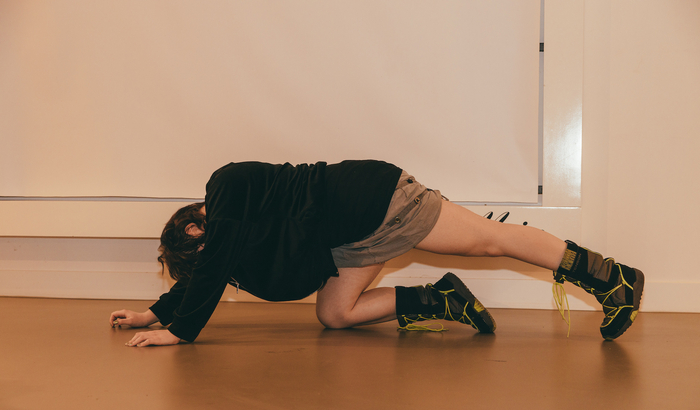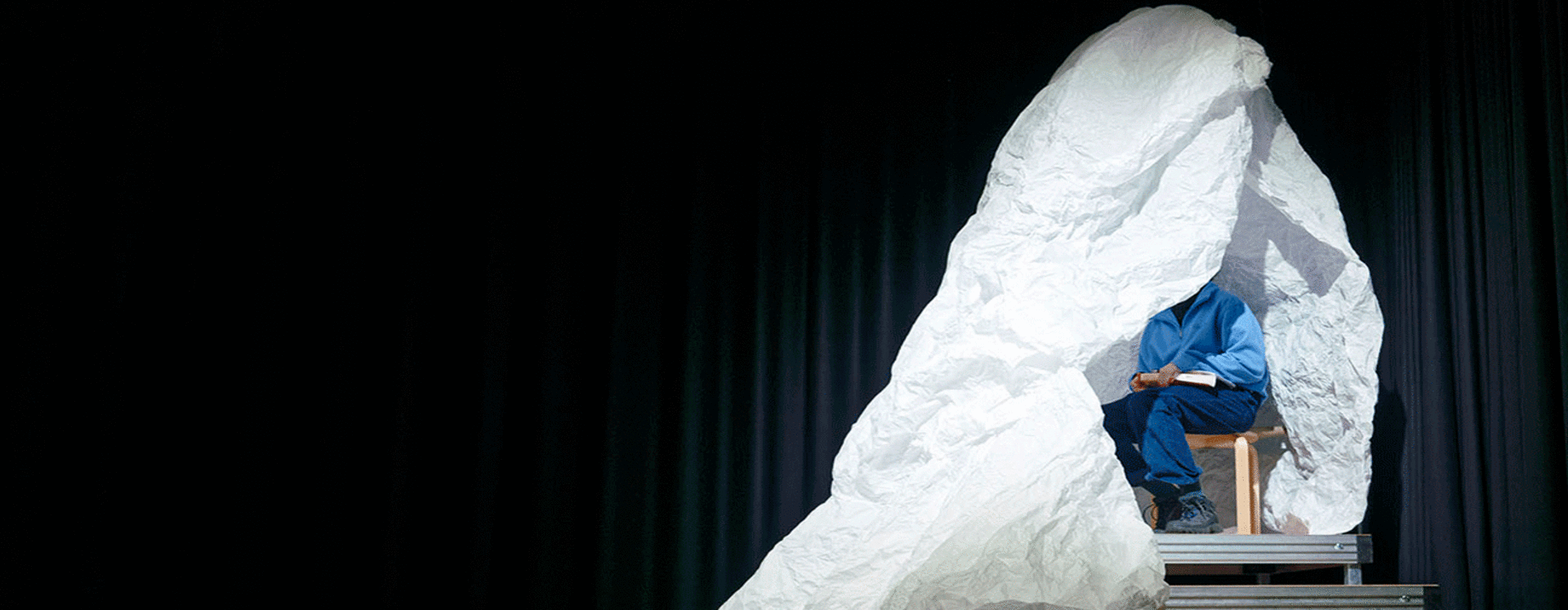Reflections on the Institute for Trans Pleasure and Trans Activism
By Elioa Steffen

When I was first asked to write a reflection on Carly Everaert and Selm Wenselaers’ Institute for Trans Pleasure and Trans Activism I was struck by my desire for the opportunity to spend some time in a trans world and my discomfort with this yearning. I was hungry for the chance to spend some time in a world where trans could be pleasurable, important, powerful. Yet, I could not separate this from my own longing to feel the warm embrace of being normal and safe. Who would not want a space where people are not constantly body scanning you, where teen boys do not scream and throw permanent markers on the bus, where access to health care or government services is not impacted by how your body aligns with their notion of gender?
Yet, I fear the seduction of normal. I fear its inseparable relationship to violence and even more its siren’s call. There are too many examples of LGBT people of privilege choosing normal over solidarity with less acceptable queers for me to sit easily with it. Yet I cannot deny that when I’m invited to a trans-exclusive space a part of me wonders: will I get to feel normal?

These are the thoughts I had when I was invited to co-facilitate a workshop supporting theatre critiques on how to watch trans performance. The word “trans gaze” was offered up, although I wasn’t really sure what that meant nor how to offer that to cis people. I had been asked as a part of my work with In Pursuit of Otherwise Possibilities (IPOP) an artistic research project exploring queer education I founded with Szymon Adamczak at the Academy of Theatre and Dance in Amsterdam.
The invitation led to a very interesting dialogue between Szymon and myself about what it meant for a cis-man and a trans-woman to offer such a workshop. A wonderfully, and surprisingly intimate encounter unfolded between us as we practiced holding each other’s humanities and histories as we surfed the currents of identity, knowledge, and power. Am I a token trans that makes this invitation possible? What did it mean for a cis-man to be invited to speak for and about trans artists? What is the necessity of articulation, of naming the situation? How do we relate to the non-identitarian queerness at the heart of IPOP when confronted with a space specifically about trans identities? How do we work with defensiveness and who does which parts of that work? What does it mean that he is probably more qualified both in training and reading than I am?

Along with the workshop, I was invited to a two-day workshop for trans-artists led by Raoni Muzho and Lux Sauer. Becoming a Tiger is Lux’s project exploring transitioning through, well, becoming a tiger. The workshop was great and challenging. Lux works a lot with somatic exercises and guided us through a series of embodiment activities into a chance to play with finding/becoming our own tiger. As Carly later described it, the workshop was a chance to experience your body from the inside as an animal, decoupled (a bit) from human gender. Offering the possibility that how we experienced our bodies could be different, which of course is a bit brutal. To open to possibilities outside the norm, especially as sensed through the (material and social) body is to in some way be faced with the gendered body, the violated body, the gazed-upon body. The body that is essentialized while lacking material coherence, for what the cis-gaze sees is not the body as it is, but the “human” reflected in through or against normative ideals.
The second workshop was on moaning, a practice Raoni Muzho has been building for several years. I was struck by the care Raoni took to initiate a space of sharing. He began by informing us that, in fact, we had made it, we were present and that was enough. There was nothing to fix and the things we experienced during the workshop could be just for us. He then asked us three questions: “What is your relationship to the voice?” “What does liberation mean to you?” and “whom or what else would you like to sound for?” After a chance to write on all three questions we shared.
In my mind there is a powerful directionality to these questions. There is the I as it relates to voice, which is about outward, bridging me and not me, or you (all.) Then there is liberation which widens the circle. For me, at least, there is no way to think of liberation solely for the self. Thus it becomes an I in an us. Finally, who else do we want to do it for, which while not necessarily ancestral, was for many people a question which brought in people over there and back then.

Photo: Gwen van der Zwan
The actual moaning was sadly a bit short, but later during lunch we were having a conversation about family and culture and what it meant to be able to exist in this form here, with this trans us, when that was not possible for many of us in our recent or ancestral past. Raoni offered the beautiful and messy idea that we are the freedom our ancestors dreamed of.
I have to admit I have been unsure how to sit with this. Yes, of course, 100%! It is beautiful and true and delicious. I am a manifestation of the dream my great-grandmother had when she migrated to the US as an indentured servant and yes, of course, my great-grandfather dreamed of me as he prospected for gold in Alaska. Both acts of hope and possibility. Both acts dependent on genocide, which is an act of normalization. What does it mean to say monsters dreamed for me this freedom to be? How do we embrace our freedom, demand the right to not be normal, within histories that in different ways are laced and for some of us at least, made possible by brutal histories of normative violence?
